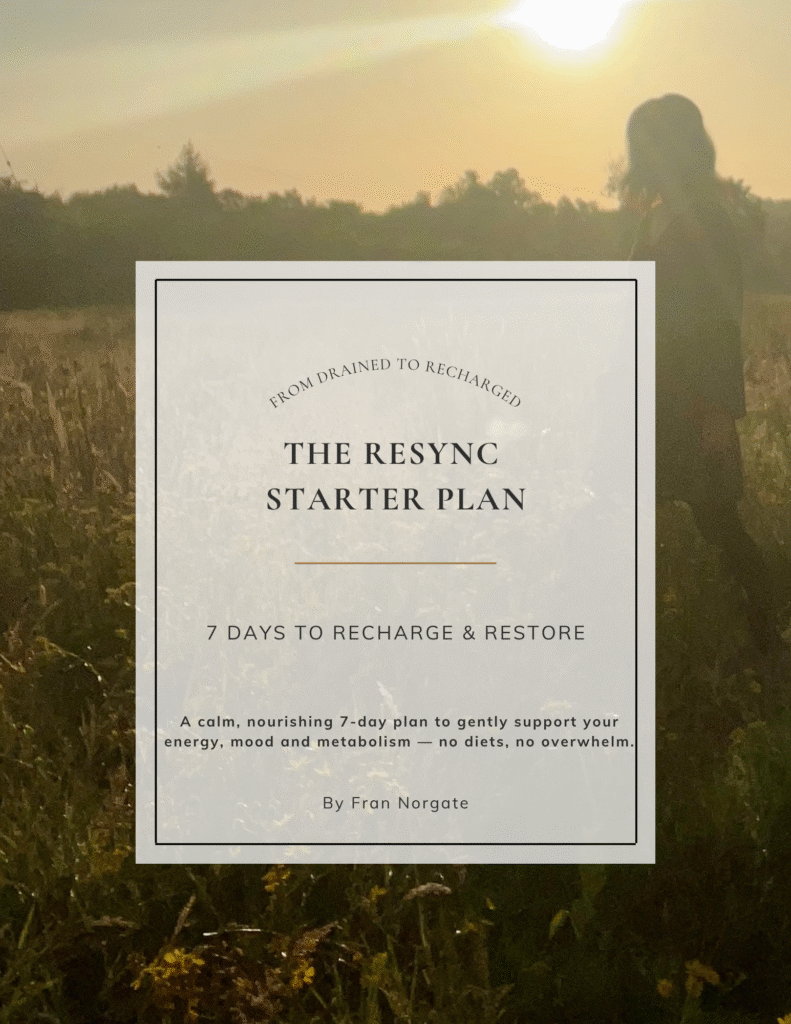Blue Light Before Bed is Like Drinking 2 Cups of Coffee
Imagine this: you crawl into bed after a long day, pick up your phone, and scroll through Instagram or TikTok for half an hour. Sounds harmless, right? But here’s the thing — in terms of its effect on your sleep, the “blue light before bed” is equivalent to drinking two cups of coffee right before shutting your eyes.
It’s a startling comparison, but it’s backed by science. Harvard Medical School and studies published in the Proceedings of the National Academy of Sciences confirm that the blue light emitted from screens can suppress melatonin (your sleep hormone), delaying the onset of deep, restorative sleep. In short, your nightly scroll may be sabotaging your body’s recovery, your brain’s detox cycles, and the natural rhythm that keeps you energised during the day.
Why Blue Light Before Bed Matters
Blue light isn’t inherently “bad.” In fact, during the day, it boosts alertness, regulates mood, and keeps our circadian rhythm aligned. The problem arises when it enters your eyes at the wrong time (i.e. in the evening).
Melatonin is the hormone that tells your body it’s time to sleep. Even a small dose of blue light, like just 30 minutes before bed, can reduce melatonin production, delaying sleep onset and shortening deep sleep. Deep sleep is when your brain flushes out toxins via the glymphatic system, consolidates memories, and restores cognitive function. Disrupting this cycle isn’t just about feeling groggy the next morning; over time, it can affect mood, focus, and long-term brain health.
A 2019 PNAS study demonstrated that evening exposure to blue-enriched light not only delayed melatonin secretion but also shifted circadian timing, meaning your body’s internal clock could get out of sync with the natural light-dark cycle. Harvard Medical School echoes this, warning that even brief exposure to bright screens before bed can impact sleep quality and duration.
The Seasonal Angle: Why Summer Makes It Sneaky
During long summer evenings, we often don’t notice the problem. Natural light is still around, masking the impact of our screens. But as autumn and winter approach, daylight shortens, and the body’s need for consistent light-dark cues becomes more critical. The habits you’re forming now — late-night scrolling, checking messages, or watching videos — will compound the seasonal shift, making the “sleep crash” in autumn feel much harsher.
This is the perfect time to start nudging your habits in the right direction, so your rhythms are aligned when the darker months hit.
Practical, Science-Backed Tips to Reclaim Your Sleep
The good news? There are simple, effective strategies to protect your melatonin and circadian rhythm without banning screens completely:
- Swap to warmer light in the evenings: Use dim, amber-toned bulbs (like incandescent bulbs or blue-light-blocking bulbs) home after sunset. This signals to your brain that it’s winding down time. LED lights emit very high levels of blue light.
- Blue-light blocking glasses: Wearing these for just 30–60 minutes before bed can drastically reduce melatonin suppression.
- Create a wind-down ritual: Reading a physical book, journaling, or gentle stretching can help signal to your body that sleep is coming.
- Keep phones out of the bedroom: Even placing your phone across the room reduces the temptation to scroll in bed.
- Set a “digital sunset”: Aim to power down bright screens at least 30–60 minutes before sleep. If you must use a device, switch to night mode, reduce screen brightness, or even better, turn your screen red (if you want to know how to do this, feel free to contact me – I’m happy to help!).
These small, intentional tweaks help your body produce melatonin naturally, maintain circadian alignment, and allow your brain to perform its nightly housekeeping.
The Takeaway
Scrolling before bed isn’t just a harmless habit; it’s akin to drinking two cups of coffee. It delays melatonin, disrupts your circadian rhythm, and interferes with your brain’s nightly detox. But with simple adjustments — blue-light blockers, warmer lighting, wind-down routines, and strategic screen-free time — you can protect your sleep and set yourself up for better energy, focus, and mood.
If you want to take it a step further and reset your body’s rhythms before autumn, our Autumn Reset programme is designed to help you align light, food, and lifestyle habits for optimal energy, focus, and wellbeing.
join the Autumn reset
Eat Like the Land Intended
a week of ancestral autumn eating
Starts Monday 15th September
Rooted in ancestral wisdom and seasonal simplicity, this gentle 7-day reset helps you nourish your body the way nature intended—using local autumn foods, daily rhythms, and circadian-aligned practices that support energy, digestion and hormones.
You’ll receive a full seasonal meal plan (with batch-cook tips, quick breakfasts, and no faff), simple daily cues to support your sleep, energy and mood, and WhatsApp support throughout the week. No calorie-counting. No extremes. Just real food, structure, and a steady return to balance.
If you’re feeling scattered, sluggish or craving calm routine, this is your invitation to slow down, warm up, and resync.
If you haven’t downloaded the Resync Starter Plan yet, it’s a great place to start your health journey without overwhelm or extreme dieting:

Ready to Feel More Like
You Again?
The Resync Starter Plan is your free guide to gently restoring energy, balance, and clarity—without diets, overwhelm, or starting from scratch.
Inside, you’ll find:
- Simple shifts to support your hormones, digestion, and nervous system
- Calming rituals to help you feel grounded in a busy world
- A rhythm that fits real life—not another rigid health plan
It’s like a warm cuppa and a deep breath… for your body and mind.
👉 Download your free copy now and take your first step back to balance.

